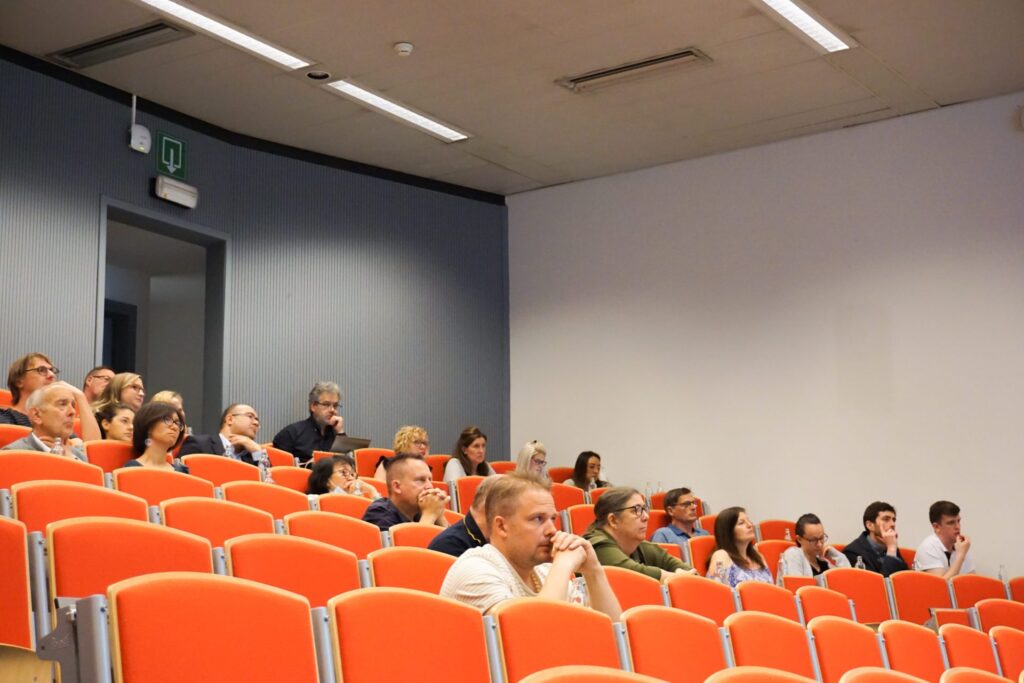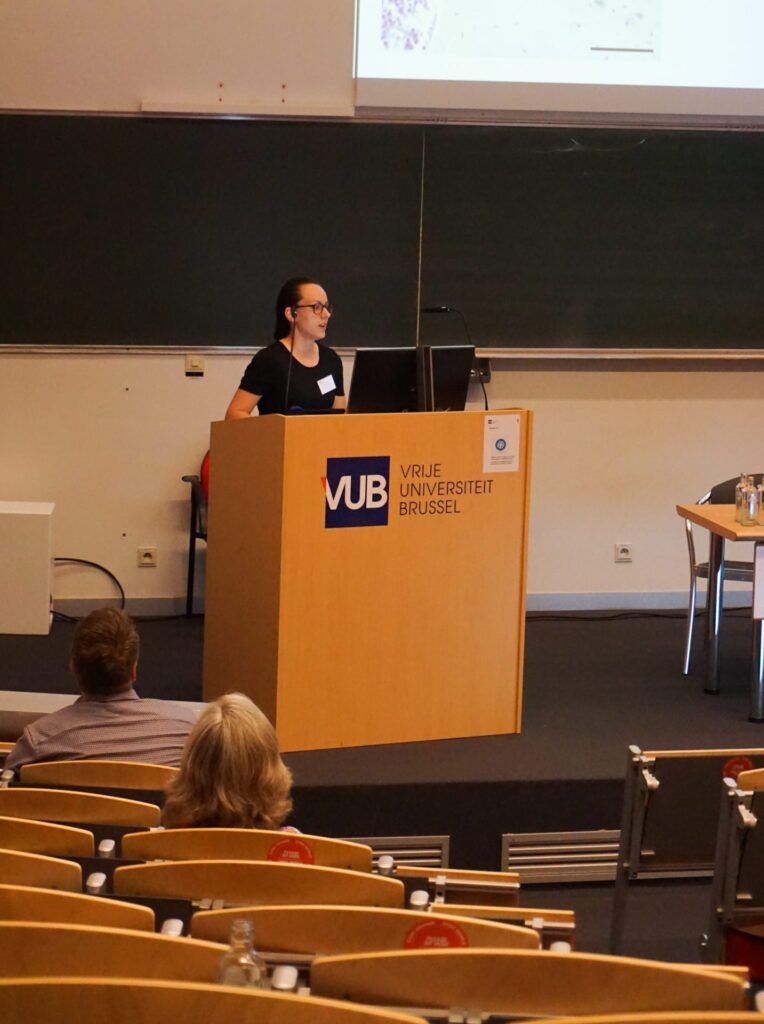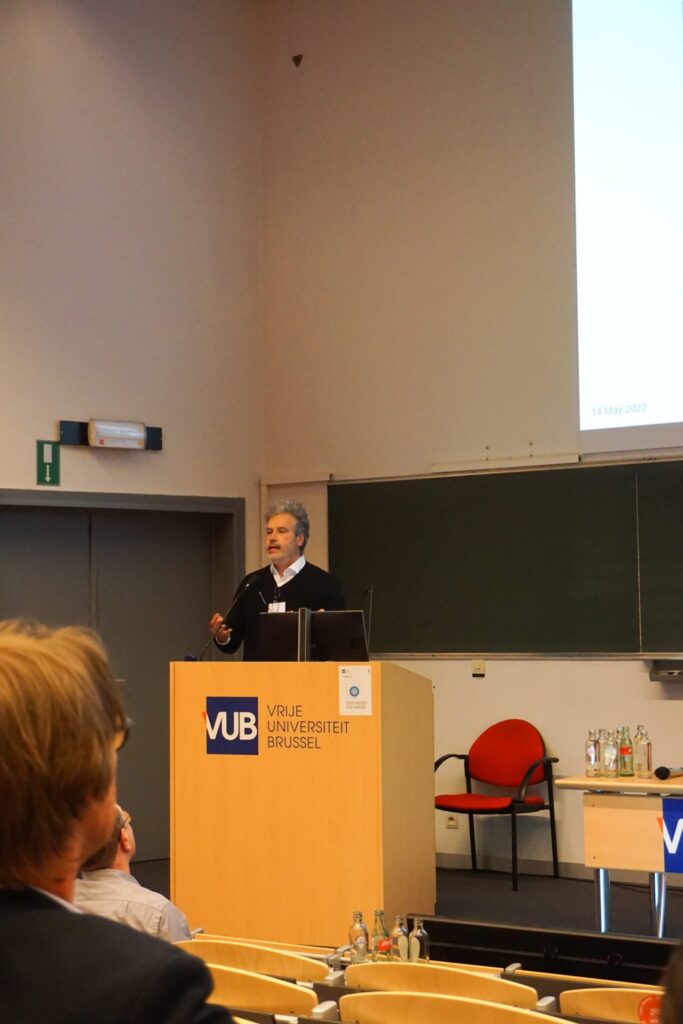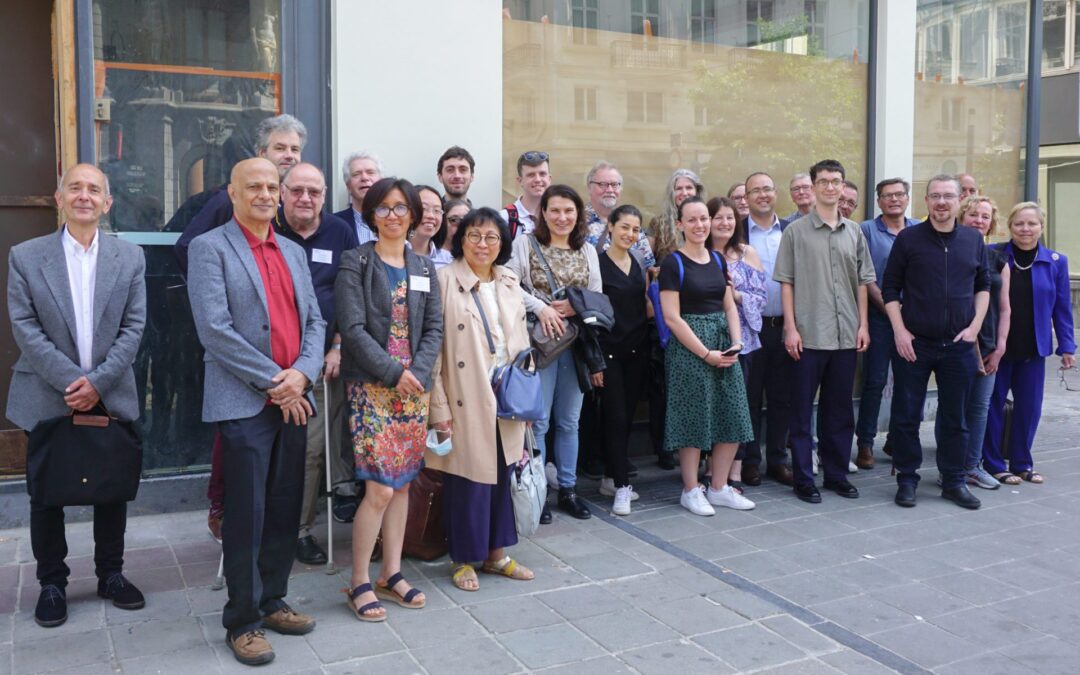This week’s blog looks back at our 12th International Conference on AKU.
After two years of COVID, we were finally able to reunite the AKU scientific community. We heard presentations from 23 speakers, coming from eight different countries, who discussed current and future research into AKU.
The conference was hosted at Vrije Universiteit Brussel, Belgium, on the 14th-15th of May.

Our first session, ‘Alkaptonuria in 2022’, gave an overview of the current research and treatment available for AKU, as well as an update on AKU in the UK, Jordan, and Turkey.

The second session, ‘Gene therapy in AKU’ focussed on the potential for gene therapy to provide a cure for AKU. We discussed the potential challenges to creating a successful gene therapy in AKU, but also heard promising news from Sanofi which has successfully created a gene therapy for AKU which they have tested on a mouse model. We hope that this will pave the way for gene therapy in AKU to be explored further.

Session two also included a special lecture from Álvaro Acosta-Serrano, from the Liverpool School of Tropical Medicines. His presentation explained how nitisinone could be used to kill blood feeding insects and could play a key role in eliminating tropical diseases. Álvaro’s team has been collaborating with patients who attend the NAC to test the way in which AKU patients’ blood can successfully eliminate vector-borne diseases because of the nitisinone present in their blood. It is hoped that the use of nitisinone to combat tropical disease will help to drive down the price of nitisinone and contribute to our efforts to achieve universal access to nitisinone to AKU patients around the world.
The final session, ‘Combatting tyrosinaemia’, discussed the issues AKU and hereditary tyrosinaemia type-1 (HT-1) patients face in controlling their tyrosine levels due to nitisinone treatment. We heard about the importance of managing and following a protein-controlled diet to manage tyrosineamia. We also heard from Dr Beth Barnby, president of the Tyrosinemia Society, who gave an informative update on research into tyrosinaemia in relation to HT-1.
We would like to say thank you to all our speakers, and everyone who attended the conference virtually or in person. The workshop was only possible thanks to a generous grant from the European Joint Programme on Rare Diseases (EJPRD) Networking Support Scheme and the team’s assistance at VUB.



